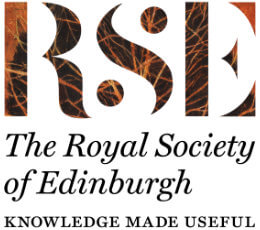What is Singing for Parkinson’s?
Parkinson’s is a progressive condition affecting the brain. According to Bloem et al. (2004) symptoms can include tremors, so=lowing of movement, muscle rigidity, issues with balance that can lead to more falls, and problems with speech including slurring, stuttering and poor projection. Parkinsons.org.uk state that ‘Around 12,400 people have a diagnosis of Parkinson’s in Scotland. That is about 1 in every 375 adults. And this number is growing.’ Currently there is no cure for Parkinson’s, but researchers are determined to find new treatments to help manage, and eventually cure the condition.
The impact on a person’s ability to vocally communicate with others can seriously affect their social participation, wellbeing and quality of life; however, research has shown that singing is typically still possible for those living with Parkinson’s. Singing can also help to improve motor function and regulate a person’s walking pace. The Sidney de Haan Research Centre for Arts and Health have compiled a lot the research on Singing for Parkinson’s and they point out that ‘the act of singing stimulates multiple areas of the brain and impacts on the loop of information that feeds back and forth from the auditory (hearing) system and the sensory-motor systems’.
There are already Singing for Parkinson’s groups in Scotland. There is also Sing to Beat, a singing for health network based in Canterbury that provides training for those interested to start a Singing for Parkinson’s group. The team are also active researchers and have published on the benefits of singing for those living with Parkinson’s.
Want to find a Singing for Parkinson’s group in your area?
![]() If you would like to find a Singing for Parkinson’s group in your area, please visit see the Scotland’s Singing for Health Map. Singing for Parkinson’s groups are marked with a red and white heart.
If you would like to find a Singing for Parkinson’s group in your area, please visit see the Scotland’s Singing for Health Map. Singing for Parkinson’s groups are marked with a red and white heart.
What does the research say and how can I access it?
There are several open-access studies available where you can learn more about Parkinson’s and the benefits of singing. Here is a selection of studies, evaluations, and literature reviews:
Irons, J. Y., Hancox, G., Vella-Burrows, T., Han, E., Chong, H., Sheffield, D., & Stewart, D. E., (2021) Group singing improves quality of life for people with Parkinson’s: an international study, Aging & Mental Health, 25:4, 650-656, https://doi.org/10.1080/13607863.2020.1720599.
Irons, J. Yoon; Coren, E.; Young, MK; Stewart, DE; Gschwandtner, M.; Mellick, GD (2019) Singing for people with Parkinson’s disease. Cochrane Database of Systematic Reviews 2(2). Art. https://doi.org/10.1002/14651858.CD013279.
Vella-Burrows, T., and Hancox, G., (2012). Singing and people with Parkinson’s, Sidney De Haan Research Centre for Arts and Health, https://www.artshealthresources.org.uk/wp-content/uploads/2017/02/singing-and-people-with-parkinsons.pdf.
There are also Restricted-access research papers where you are able to view the abstract and key information about the study or literature review:
Bloem, B., Hausdorff, J., Visser, J. et al. (2004) Falls and freezing of gait in Parkinson’s disease: A review of two interconnected, episodic phenomena. Movement Disorders, 19, 871-884.
Clift, S., Hancox, G., Morrison, I. et al. (2010) Choral singing and psychological wellbeing: Quantitative and qualitative findings from English choirs in a cross-national survey, Journal of Applied Arts and Health, 1, 1, 19-34.
Fogg-Rogers, L., Buetow, S., Talmage, A., McCann, C. M., Leão, S. H. S., Tippett, L., Leung, J., McPherson K. M., & Purdy, S. C., (2016) Choral singing therapy following stroke or Parkinson’s disease: an exploration of participants’ experiences, Disability and Rehabilitation, 38:10, 952-962, https://doi.org/10.3109/09638288.2015.1068875.
Irons, J. Yoon; Hancox, Grenville (2021) Singing (Arts for Health). Emerald Publishing Limited.
Nombela, Cristina; Hughes, Laura E.; Owen, Adrian M.; Grahn, Jessica A. (2013) Into the groove: Can rhythm influence Parkinson’s disease?, Neuroscience & Biobehavioral Reviews. 37(10). https://doi.org/10.1016/j.neubiorev.2013.08.003.
Pacchetti, C., Mancini, F., Aglieri, R. et al. (2000) Active music therapy in Parkinson’s disease: An integrative method for motor and emotional rehabilitation. Psychosomatic Medicine, 62, 386-393.
Stegemöller E.L., Hurt T.R., O’Connor M.C., Camp R.D., Green C.W., Pattee J.C., Williams E.K., (2019) Experiences of Persons With Parkinson’s Disease Engaged in Group Therapeutic Singing. J Music Ther. 13;54(4):405-431.
Tanner, M., Rammage, L., & Liu, L., (2016) Does singing and vocal strengthening improve vocal ability in people with Parkinson’s disease?, Arts & Health, 8(3), 199-212, https://doi.org/10.1080/17533015.2015.1088047.
Wan, C., Ruber, T., Hohmann, A. et al. (2009) Therapeutic effects of singing in neurological disorders. Music Perception, 27, 4, 287–295.
Wydenbach, Nicola; Vella-Burrows, Trish; Hancox; Grenville (2019) Singing for People with Parkinson’s Designing and Delivering Singing Sessions for People with Parkinson’s and Other Degenerative Neurological Disorders. Compton Publishing.
Brianna Robertson-Kirkland



